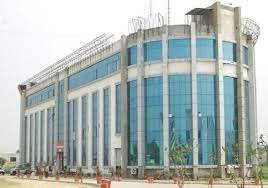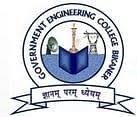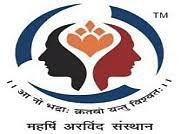Exploring the Future Scope and Benefits of B.Tech Degree
The pursuit of a Bachelor of Technology (B.Tech) degree is a pathway to a promising and dynamic career in the world of technology and engineering. In an age characterized by rapid technological advancements, B.Tech graduates are in high demand across various industries. In this comprehensive guide, we will explore the future scope and benefits of obtaining a B.Tech degree, shedding light on the endless possibilities and advantages it offers to aspiring engineers.
Future Scope of a B.Tech Degree
The future scope of a B.Tech degree is exceptionally bright and promising. The fast-paced evolution of technology and its integration into nearly every aspect of modern life has created a high demand for skilled professionals in the field of engineering. Here are some key areas of future scope for B.Tech graduates:
1. Information Technology (IT): The IT sector has been a major driver of employment and innovation for decades. B.Tech graduates specializing in computer science, software engineering, and information technology continue to be sought after by companies developing software, applications, and IT infrastructure.
2. Artificial Intelligence and Machine Learning: AI and ML are revolutionizing industries ranging from healthcare to finance and beyond. B.Tech graduates with expertise in these fields are instrumental in designing and implementing intelligent systems, data analysis, and automation.
3. Cybersecurity: With the growing number of cyber threats and data breaches, the demand for cybersecurity experts is rising exponentially. B.Tech graduates specializing in cybersecurity have a promising future in safeguarding digital assets.
4. Renewable Energy and Sustainability: As the world shifts towards sustainable energy sources, B.Tech graduates in fields such as renewable energy, environmental engineering, and sustainable technologies are poised to play a critical role in addressing global challenges related to climate change.
5. Biotechnology and Healthcare: Advances in biotechnology are transforming healthcare and pharmaceuticals. B.Tech graduates specializing in biotechnology have an array of opportunities in research, drug development, and healthcare technology.
6. Electronics and Communication Engineering: The demand for experts in electronics, telecommunications, and network engineering remains high. These professionals work on developing and maintaining the systems that power our modern communication and connectivity.
7. Aerospace and Aviation: The aerospace and aviation industry is continually evolving, with room for innovation in aircraft design, satellite technology, and space exploration. B.Tech graduates specializing in aerospace engineering have exciting prospects in these domains.
8. Civil and Structural Engineering: Infrastructure development and urbanization are creating a continuous need for civil and structural engineers. These professionals are essential for designing and supervising the construction of roads, bridges, buildings, and more.
9. Mechanical Engineering: Mechanical engineers play a crucial role in the design and development of machinery, vehicles, and manufacturing processes. As manufacturing technology evolves, the demand for skilled mechanical engineers remains steady.
10. Automotive Engineering: With the growing focus on electric and autonomous vehicles, the automotive industry offers exciting opportunities for B.Tech graduates specializing in automotive engineering.
11. Data Science and Analytics: In an era of big data, data science and analytics professionals are integral to making sense of vast amounts of information. B.Tech graduates in this field are essential for data-driven decision-making.
12. Robotics: The future is filled with opportunities in robotics. B.Tech graduates in this field work on developing and improving robots for applications in industries like manufacturing, healthcare, and space exploration.
Benefits of Pursuing a B.Tech Degree
Pursuing a B.Tech degree offers numerous benefits that extend beyond future job prospects. Here are some key advantages:
1. Diverse Career Opportunities: B.Tech graduates have the flexibility to work in a wide range of industries, from IT and healthcare to aerospace and environmental engineering. This diversity allows you to explore different career paths and adapt to changing market demands.
2. Job Security: Engineering professionals are consistently in demand. The technical skills and problem-solving abilities acquired during a B.Tech program make graduates resilient to economic fluctuations.
3. High Earning Potential: Engineering careers are often associated with competitive salaries. As you gain experience and expertise, your earning potential increases significantly.
4. Innovation and Creativity: Engineering is a field that encourages innovation and creativity. As an engineer, you have the opportunity to design, build, and solve complex problems, contributing to the advancement of technology and society.
5. Global Opportunities: B.Tech graduates often find their skills transferable across international borders. This opens up the possibility of working in different countries and experiencing diverse cultures.
6. Personal Fulfillment: If you have a passion for solving real-world problems and making a positive impact on society, engineering can be an incredibly fulfilling career choice.
7. Entrepreneurship: B.Tech graduates with entrepreneurial aspirations can leverage their technical knowledge to create and lead startups. Many successful technology companies were founded by engineers who identified innovative solutions to existing problems.
8. Continuous Learning: The field of engineering is ever-evolving. This necessitates a commitment to lifelong learning, which can be intellectually stimulating and personally rewarding.
9. Professional Networks: During your B.Tech program, you have the opportunity to build valuable professional networks, both with peers and professors. These connections can be instrumental in your career growth.
Emerging Trends and Technologies
To stay competitive and relevant in the field of engineering, B.Tech graduates need to be aware of emerging trends and technologies. Here are a few notable ones:
1. 5G Technology: The rollout of 5G networks is set to revolutionize mobile communications and enable the Internet of Things (IoT). Engineers specializing in telecommunications and network technologies are crucial for the success of this technology.
2. Quantum Computing: Quantum computing has the potential to solve problems that are currently unsolvable with classical computers. Engineers involved in quantum computing are at the forefront of a technological revolution.
3. Blockchain and Cryptocurrency: Blockchain technology is not limited to cryptocurrencies; it has applications in supply chain management, secure voting systems, and more. Engineers who understand blockchain's capabilities are in demand.
4. Nanotechnology: Nanotechnology involves working at the nanoscale and has applications in various fields, including materials science, medicine, and electronics. Engineers specializing in nanotechnology are involved in cutting-edge research and development.
5. Environmental and Sustainable Technologies: With an increasing focus on environmental conservation and sustainability, engineers in this field are working on innovations such as green energy solutions and eco-friendly materials.
6. Space Exploration: The aerospace industry is seeing a surge in interest due to space exploration and colonization plans. Engineers with expertise in space-related technologies have exciting prospects.
Bachelor of Technology Challenges in the Field
While the field of engineering offers tremendous opportunities, it also presents certain challenges. It's important to be aware of these challenges and prepare for them:
1. Continuous Learning: The rapid pace of technological advancements means that engineers must commit to lifelong learning to stay updated in their field.
2. Work-Life Balance: Some engineering roles can be demanding, potentially affecting work-life balance. This varies by industry and organization, so it's important to choose a career path that aligns with your personal goals.
3. Complex Problem Solving: Engineers often deal with complex and challenging problems. The ability to adapt and find innovative solutions is a key skill.
4. Regulatory and Ethical Issues: Engineers are expected to work within ethical and legal frameworks. Navigating
 4 Years
4 Years
 Under Graduate
Under Graduate
 Engineering
Engineering
 Full Time
Full Time





















 back
back